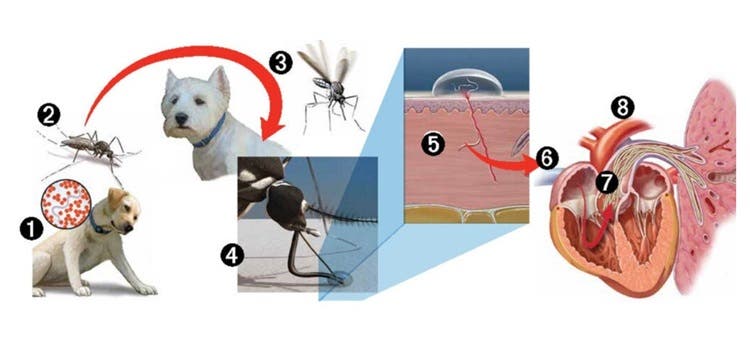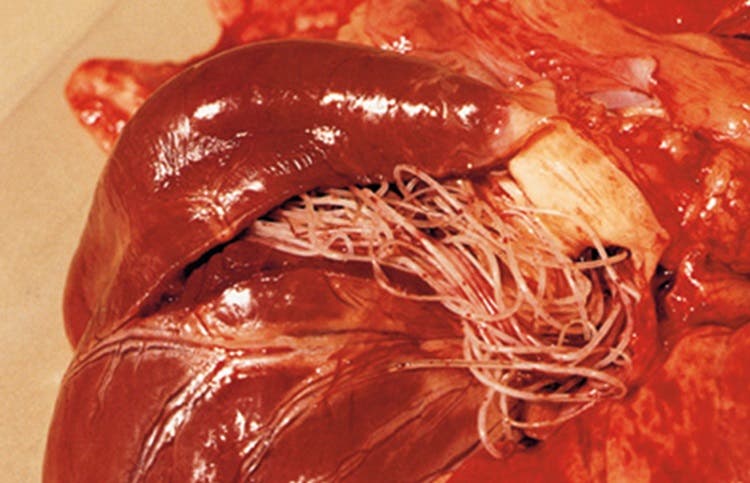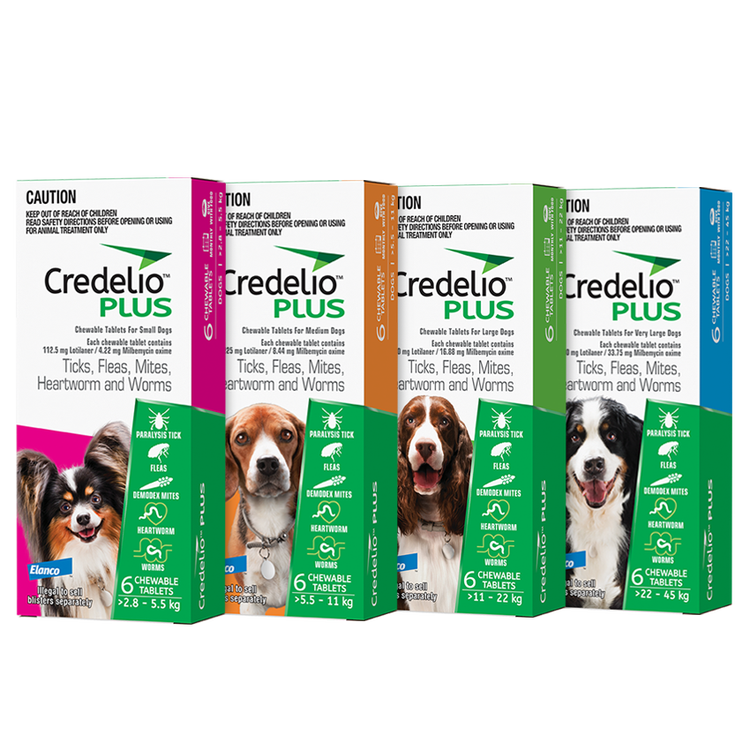Heartworm poses a serious – and possibly life-threatening – risk to your dog. Prevention is better than cure, so it is crucial to ensure your dog is protected from this deadly parasite all year round.
How widespread is heartworm in Australia?
Heartworm disease has been recognised as a serious and prevalent concern for dog owners in many parts of Australia. Although exact numbers can vary due to a myriad of factors such as the local mosquito population and the use of preventative measures, cases of heartworm have been reported across the country.
Rain-drenched regions such as pockets of Queensland and New South Wales, with their teeming mosquito populations, have traditionally been infamous as heartworm hotspots. However, drier parts of Australia that have fewer mosquitoes, still have reported cases of heartworm disease in dogs.
How do dogs get infected with heartworm?
Mosquitos play a crucial role in the transmission of heartworm between dogs. This means that heartworm cannot be transmitted directly from one dog to another. Therefore, a dog cannot catch heartworm disease simply by being close to another infected dog. It's the mosquitoes that carry and transmit the disease, acting as a vector between hosts.

1. The dog has an active heartworm infection. Microscopic offspring, known as microfilariae, are produced by adult worms and circulate in the blood – they can appear in the dog’s blood 6 - 9 months after infection.
2. A mosquito bites a heartworm-infected dog and ingests blood containing microfilariae. The mosquito is now infected with heartworm.
3. Inside the mosquito, the microfilariae mature into infective larvae and are stored within the saliva of the mosquito.
4. The infected mosquito transmits the infective heartworm larvae to another dog while feeding on the dog’s blood. The infective larvae are deposited onto the surface of the skin when the mosquito bites, and the larvae crawl into the bite wound.
5. Heartworm larvae move through the dog’s tissue, making their way to the dog’s heart and pulmonary arteries (large blood vessels leading to the lungs) approximately 70 days after infection.
6. Larvae develop into adult heartworms and reside in the dog’s pulmonary arteries, or in the case of heavy infections, the chambers of the heart.
7. Adult heartworms produce microscopic offspring called microfilariae that are released into the bloodstream. These can then be picked up by another mosquito and passed on to another dog.
Signs of heartworm disease in dogs
Many dogs infected with heartworm don’t show any symptoms for a long period of time. However, given that adult heartworms can live in a dog for 5-7 years and grow up to 30 cm in length, they can produce severe damage to the heart, lungs and other organs over that time. The most common signs seen in dogs with heartworm disease are:
- Coughing
- Difficulty breathing
- Lethargy
- Decreased appetite and/ or weight loss
- Fainting
- Heart failure & sometimes sudden death
It is important to note that these signs can occur with many other conditions, which is why it is important to see your veterinarian as soon as possible if your dog is displaying signs of being unwell. Your veterinarian can conduct various tests to see if your dog is infected with heartworm.

Heartworms in a dog’s heart & pulmonary artery
Prognosis of heartworm disease
Heartworm disease is a potentially life-threatening condition, so the earlier it is diagnosed, the better the outcome. Because dogs with early or mild infections often don’t show any symptoms, it is important to have your vet test your dog for heartworm, especially if they have not been receiving a product that protects them against this nasty parasite.
Treatment of heartworm disease can be a prolonged and often risky undertaking, especially in dogs with severe or advanced disease. Even with successful treatment, some dogs may have irreversible damage to the heart and lungs. This is why preventing your dog from developing heartworm disease in the first place is so important.
How to protect your dog from getting heartworm disease
In the end, prevention is the best defence. To help avoid heartworm disease altogether, make sure your dog is on an effective heartworm-preventative product, such as AdvocateTM. Advocate is a fast-acting, water-resistant, easy-to-use monthly spot-on that protects against heartworm, as well as fleas and most gastrointestinal worms.
Other options that are available to protect your dog against heartworm include Milbemax™ and CredelioTM PLUS. Milbemax has been trusted by Australian Vets for over 20 years to protect dogs against heartworm and gastrointestinal worms when given monthly. It comes in small, unflavoured tablets which make protecting your dog against these nasty parasites a breeze.
Credelio PLUS is a monthly chewable tablet that is not only effective against heartworm but also protects dogs against most gastrointestinal worms, as well as fleas, ticks and demodex mites.
Advocate, Milbemax and Credelio PLUS are all very effective at killing the early larval stages of heartworm that infect a dog when it is bitten by an infected mosquito. This means the infection is stopped before these “baby” heartworm can develop into deadly adult heartworm that causes disease. However, even with preventative medications like Advocate, Milbemax and Credelio PLUS, it's crucial to remember the role of regular vet check-ups. Your vet can carry out heartworm tests as required to ensure your dog remains as healthy as possible. And remember to always read product leaflet for full instructions.
Besides using heartworm preventatives, you can implement other measures such as minimising your dog's exposure to mosquitoes, especially during peak mosquito activity times like dusk and dawn. While it is not entirely possible to avoid all mosquito bites, reducing the number can significantly lower the risk of heartworm disease.
Thus, the combination of regular preventative medication, consistent vet check-ups, and reducing exposure to mosquito bites form a powerful triad in protecting your beloved pet from heartworm disease. It is essential to stay vigilant and proactive about your dog's heartworm prevention to ensure their long-term health and well-being. Prevention truly is the best defence.

Advocate for dogs
Advocate provides fast relief from fleas, prevents deadly heartworm and helps protect your dog and your family from most intestinal worms

Credelio™ Plus 4 in 1 protection in the smallest chew
Keeps your dog protected from ticks, fleas, demodex mites PLUS heartworm and intestinal worms.






